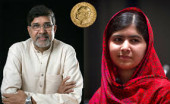Re Ian Bremmer 'Could third-party candidates upend the 2024 US election?' 3 April The current political movement in the USA…
Wednesday Night #1332
Written by Diana Thebaud Nicholson // September 12, 2007 // Reports, Wednesday Nights // 3 Comments
We are very happy to introduce this week two heretofore-unknown cousins of Diana’s from Louisville, Kentucky, Laura Thébaud Gibb and her husband Gary. Neither has ever been to Montreal and this unfortunately will be a 24-hour flying visit. Laura was the director of a Kentucky county public library near Louisville. Gary, a native Louisvillian, was a submariner for the first part of his career. After he separated from the service, he finished his engineering degree, and now works for Raytheon Missile Systems making launchers for the navies of several countries. We are very much looking forward to having them with us.
Meanwhile, with the exception of Canada’s prorogued parliamentarians (we liked the Gazette’s editorial on this) our world seems to have returned to work, having shed that subtle sense of relaxation that comes with the warm weather and sunshine of summer months.
As work places return to their full complements, no-one has the excuse that nothing can be done because everyone is away on holidays. After Labour Day, there seems to be a collective puzzlement that little seems to have changed over the past few months, accompanied by a renewed sense of purpose, a feeling that this is the true beginning of the new year, a time to make resolutions, reaffirm goals and renew efforts to change the world. Perhaps this is the remnant of our academic experience, but it is mirrored in the timing of the meeting of the UN General Assembly.
This is also, apparently, a good time to launch new serious books, possibly in the hope that everyone has tired of beach reading. So last week ,we had Naomi Klein’s articulate attack on capitalist Shock Doctrine for disaster economies, and Dead Certain the none-too flattering new biography of George W. Bush by Robert Draper, and now this week, dominating air waves and headlines, Brian Mulroney’s “Memoirs”, sure to be a controversial subject, even among the many who will not read any or all of its 1100 pages.
Do not turn to the print media for lighter topics. The same items that were there in the spring are still on the agenda.
At home, as the Consultation Commission on Accommodation Practices Related to Cultural Differences (CCAPRCD) starts its hearings , and on the eve of the three Québec by-elections, Elections Canada has chosen to throw a pebble into already muddied waters with a decision (that nobody seems to have asked for) that Muslim women may wear the burka or niqab in the voting stations., kicking off reactions from politicians and Muslims alike
The much-anticipated Asia-Pacific Economic Cooperation (APEC) meeting in Sydney, limped to a close Sunday, with a heavily compromised agreement on tackling climate change based on ‘aspirational’ goals , few answers on how to push the global trade agenda forward.
American commander in Iraq, General David Petraeus, and America’s ambassador in Baghdad, Ryan Crocker are appearing before Congress. Early bulletins indicate that General Petraeus, having stated that the troop “surge” is meeting military objectives and “delivered a report that mixed descriptions of slow, modest progress in pacifying Iraq with a prediction that many tough days lies ahead”. Before the end of the week the administration is due to issue a written report on Iraq’s progress towards a set of 18 military and political “benchmarks” which, if met, would signify that the country is ready to stand on its own feet.
The UN Secretary-General’s trip to meet one-on-one with African leaders to try to find an end to the crisis in Darfur gives some hope, but in our start-of-the-new-year impatience, we remain dismayed by the slow progress
The very public instantaneous arrest and deportation of ex-PM Nawaz Sharif from Pakistan is not an encouraging sign in a country that is beset with serious problems that have their roots in its creation sixty years ago.
Given the generally discouraging items above, what about the economy? No relief in the view of the Economist: “WHATEVER your opinion of the health of America’s economy was a couple of days ago, it should now be a lot gloomier” Nor does Bloomberg offer much joy: ” Global economic growth looks likely to slow markedly in the months ahead as further weakness in the U.S. infects Asia and Europe. That would represent a shift from the last 18 months, when the world economy proved immune to a U.S. slowdown.”
The Report
Nuclear Power and Socially Responsible Investing frequently do not coincide. A case in point is that the new offering to members from the McGill Pension Fund is a possible SRI pooled fund that would be screened by independent investment research firms that evaluate and monitor the environmental, social, and governance performance of Canadian companies. They screen for nuclear energy production and any use of uranium. If, as Wednesday Night has come to be convinced, the only viable long-term energy source to solve the majority of the planet’s energy requirement is fast breeder reactors, then Douglas Lightfoot and other proponents of nuclear energy need to rise to the challenge of convincing SRI advisors and fund managers like the Ethical Funds Company of the need to include nuclear energy in SRI funds, and convince them that this is the best solution for global warming (It being fully understood that transport in general and aviation in particular will not be solved with nuclear or electrical energy).
The Market (see also Jacques Clément’s Report)
Right now what we are seeing is only the tip of the iceberg; we are going to see a great deal of volatility, so investors had better get used to it.
The situation with the hedge funds, private equity funds and derivative products is out of control. It is likely that half of the hedge funds will go bust.
On the positive side, we have seen volatility over the last 5-6 years, there is growth going on in the world, some very positive things happening, great balance sheets and one day the market will turn. The secret to success is simple: buy business with superb underlying economies run by honest, able people, and buy at sensible prices.
In the view of one expert, the Canadian dollar will go beyond parity because of several factors: surpluses, the wealth of natural resources in demand by Americans, strong consumer spending, and the money that is pouring in from Europe where the euro at $1.39 is unsustainable. Furthermore it is probable that short-term interest rates will go down – and we’ll have to live with it.
In the U.S., the only good news is the rise in exports due to the record decline in value of the U.S. dollar and the rise in non-residential spending, i.e. hospitals, institutions, infrastructure. But imports continue to outweigh exports and there is a trade deficit of $59 billion. That’s why the U.S. dollar will continue to weaken against all currencies and will likely be at 98 cents by December, reaching premium by mid-next year. Manufacturing sector has.
It is expected that next week, September 18, the Federal Reserve will be lowering the fed funds rate by ½ to 4¾ but will keep the discount rate at 5¾. Expectation of a recession in the U.S. is now hovering at 50%, for the first time in 4 years employment figures were negative; auto sales the lowest in 9 years; the housing market is crumbling, the weakest in 16 years.
In both Canada and the U.S. the auto sector is in trouble. The Canadian dollar is rising despite the 7% drop in price of prices of four key minerals, but gold has risen $43. The drop in commodity prices may be attributable to selling off by hedge funds or a fear that China’s demand has peaked in response to rising inflation (currently 6½%) in that country. While one expert believes that the Canadian stock market will outperform the U.S., another points out that banks make up 33% of the TSE, and if they are hit in the commercial lending crunch, it would be very difficult for the TSE to outperform.
The Asset Backed Commercial Paper (ABCP) crisis continues to worry our experts. Investors holding billions of dollars in non-bank-sponsored asset-backed commercial paper, or ABCP, have signed 60-day standstill agreements under the so-called Montreal Proposal. Led by the Caisse de dépôt et placement du Québec, it is a preliminary plan designed to buy time and eventually restructure Canada’s $35-billion market for asset-backed commercial paper (ABCP) that is not sponsored by the banks. Institutions that have signed the proposal have agreed to a 60-day freeze on trying to get money out of the trusts, as well as from asking for money from lenders. The second part of the plan is to convert the paper into longer-term debt instruments.
Our experts wonder what will happen on the October 15 deadline and how the assets will be valued. The consensus is that the rating agencies have not done their job. There may well be a backlash (law suits) against the Canadian banks whose enormous profits are already the subject of criticism. They point out that the fallout of the crisis is far more extensive than the homes that will be repossessed, people will not spend if they are worried about losing their jobs.
The Cirque de Soleil
The world-wide expansion (Macao, Madison Square Gardens, Dubai) of the Cirque continues under the leadership of Guy Laliberté who is noted for his drive, some say ruthlessness. Those who work with him say that this impression is inaccurate, that he has the ability to lead with much encouragement and kindness to performers and support staff. His decisions regarding the performers are always based on the safety of their colleagues. He is both a visionary, and a shrewd businessman. One of the principal reasons for the establishment of bases around the world is that he spreads his risks, having learned after September 11 the vulnerability of a purely North American base.




3 Comments on "Wednesday Night #1332"
Harper puts politics above the national good
“The first session of the 39th Parliament was exceptionally productive,” Prime Minister Stephen Harper said last week, “especially for a government in a minority situation.” There’s some truth in that. What he didn’t then go on to say, but we will, is this: “… by continuing the session to pass worthwhile bills now on the order paper, we could accomplish even more for Canadians.”
Instead, the PM has chosen to prorogue Parliament. That stuffy old word means “throw out all the legislative work done this last year and more, except for bills already passed by both houses, and start over.” For a man who claims to be concerned with the well-being of Canadians, Harper certainly seems to have weighted this decision on the side of the well-being of his own career and party. Gazette editorial 10 September 2007
Note to the CCAPRCD
A new report warns that many skilled foreigners are leaving the United States because the annual quota for resident visas is too small. The study by the Ewing Marion Kauffman Foundation says that about one million potential immigrants compete for 120,000 visas issued each year. As a consequence, applicants are forced to wait several years to get the visa. The report says that many leading American businesspeople first came to the U.S. as students, and then remained. Almost one in three founders of an American technology startup company is an immigrant. The large majority of those founders were from India. Last year, foreign nationals living in the United States contributed to one in four of all international patent applications. The report warns that visa applicants are frustrated by the long wait to obtain resident documents and decide to return home, creating a reverse brain drain.
A disgraceful and cynical surge of self-interest
11 September 2007
We should not be surprised that the Congressional testimony from General David Petraeus, the US commander in Iraq, yesterday painted an encouraging picture of the situation in the country. General Petraeus was reporting on his own efforts to curb the insurgency in Iraq and evaluating a military approach that he had personally championed. He was never likely to conclude that the surge had failed. And nor was the White House likely to schedule a report of failure to coincide with the sixth anniversary of the September 11 attacks.
The Independent – Leading Article